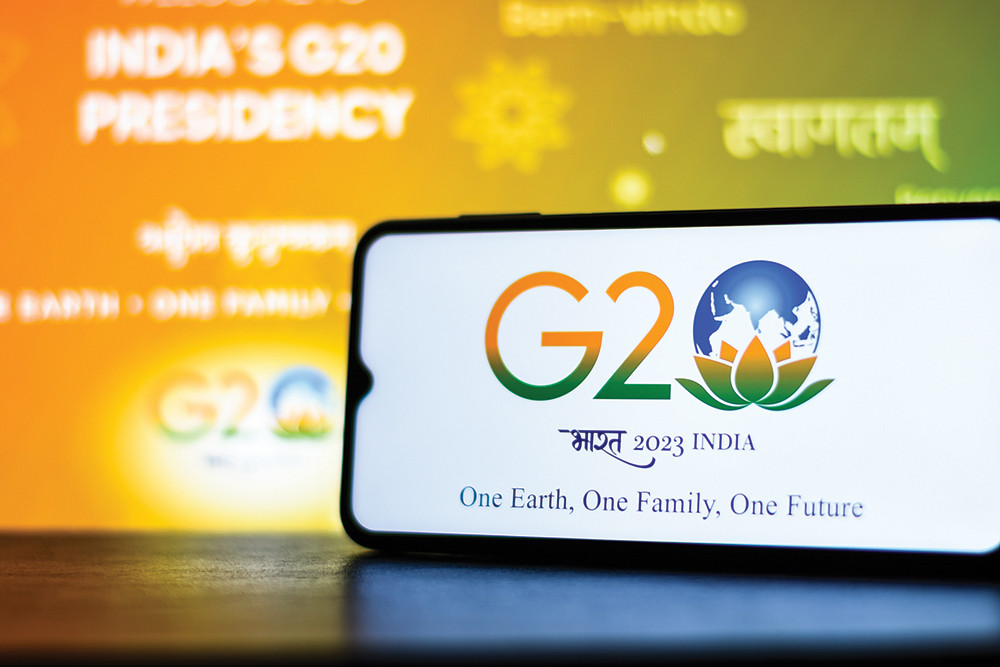
Now that world leaders have departed after witnessing the grandeur and splendour of the G20 summit in New Delhi, it is time to take stock of the outcome – honestly and dispassionately.
The questions begging for answers are: (a) What has the Delhi summit actually resolved? (b) Can the Delhi Declaration be transformed into reality in a reasonable time frame? and (c) What has been G20’s delivery record since its inception in 1999?
Keen observers of geo-politics point out some major achievements: (a) induction of the African Union into G20 as a permanent member, following which the group now represents 80% of the world’s population (b) proposal to create a modern Spice Route connecting Europe, the Middle East and India through shipping and railways, thus offering an alternative to China’s Belt and Road Initiative which already involves 149 countries through MoUs (c) launch of Global Biofuels Alliance wherein Brazil, India and USA – major producers and consumers of bio-fuels – will join hands along with other interested countries.
India’s presidency ensured that all resolutions were passed with consensus even though the one on the Russia-Ukraine conflict did not reflect the existing reality. Notably, G20’s Bali summit last year had categorically criticised Russia’s aggression.
The consensual passage of the resolutions was the outcome of backbreaking efforts of the sherpas – personal representatives of the leader of a member nation who play a critical role in negotiations and resolving conflicts. Like Nepal’s renowned Sherpas, who guide mountaineers to Everest and other summits, sherpas help in tiding over contentious issues in conferences of global leaders like G7 or G20. Each member nation is represented by one sherpa. Sherpas representing different G20 countries spent over 200 hours at different locations in India well before the 2023 summit, striving for political consensus at the highest levels.
But G20’s past shows that it has been big on talk and low on outcome. This is because the group’s resolutions are not legally binding which is a systemic weakness. It was only in the years 2008 and 2009 that G20 played a notable role in dealing with the Global Financial Crisis. This prompted G20 to venture into diverse fields like climate change, gender issues, sustainable development, terrorism, security concerns, technology and financial inclusion, etcetera. The focus was lost and the group has eventually transformed into a Jack of all trades and master of none.
Way back in 2009, the group’s summit in Pittsburgh resolved to gradually do away with fossil fuel subsidies. The Delhi summit has repeated the same. But New Delhi is right now hiking subsidies on cooking gas in view of the general election in 2024. The summit also chose to avoid direct reference to prevent the world warming by 1.5 degree Celsius above the pre-industrial revolution level. This is being seen as a serious lapse at a time when extreme weather disasters are causing havoc around the globe.
However, the proposed India-Middle East-Europe shipping-railways project is a visionary one though it will require enormous funding. Involvement of Saudi Arabia and other petroleum-rich countries in the Middle East (West Asia) will be vital for the ambitious plan.
The corridor should boost opportunities for Nepali entrepreneurs and businesspersons. Export of our goods up to the gates of Europe via other buyer countries will become an easier and alluring proposition. We need to gear ourselves to make the most of the new avenues, beginning this hour. Even chance favours the prepared mind.
For the G20 to become more effective, it needs to devise a way cutting across the widely varying and often conflicting ideologies, economic models and world-views of its member countries. It has no permanent secretariat. The presidency moves from one member country to another annually. It has been passed on to Brazil after the Delhi summit.
Continuity – the cornerstone of good governance in governments, international organizations like the UNO or G20, business corporations – has been largely absent in G20 as member countries have been found promoting their individual interests instead of the group’s larger goals. With this being the background, the Delhi summit’s slogan ‘One Earth, One Family, One Future’ appears farfetched. It is also being claimed that the ‘mind-boggling’ pomp and show during the Delhi summit was aimed at projecting Narendra Modi as a global leader with an eye on the forthcoming general elections. Allegedly over INR 4000 crores was spent. But it is being ignored that much of the infrastructure created for the Delhi summit will serve that city for a long time.
We have witnessed NAM (Non-Aligned Movement) and SAARC losing their relevance in today’s world. G20 needs to move beyond grand pronouncements and deliver on its promises. A more manageable list of priorities needs to be devised so that action speaks for itself. That is imperative if G20 has any intention of leaving its footprints on time.


